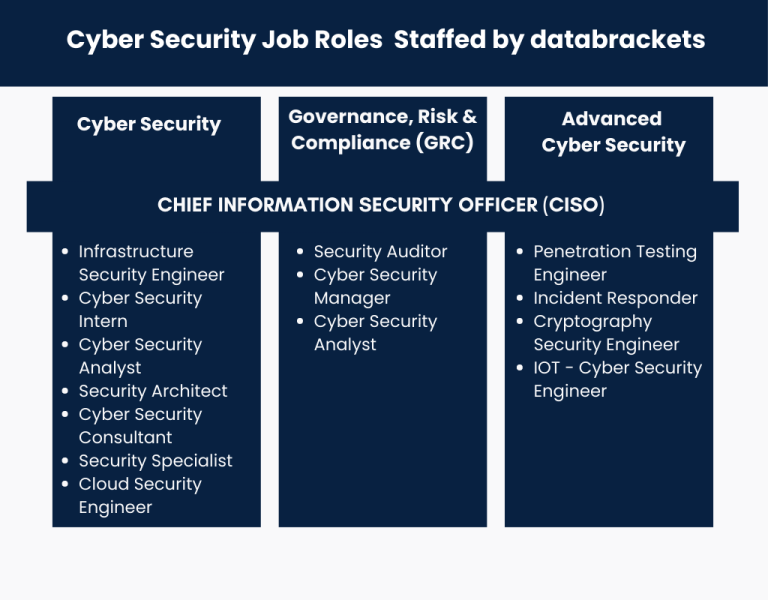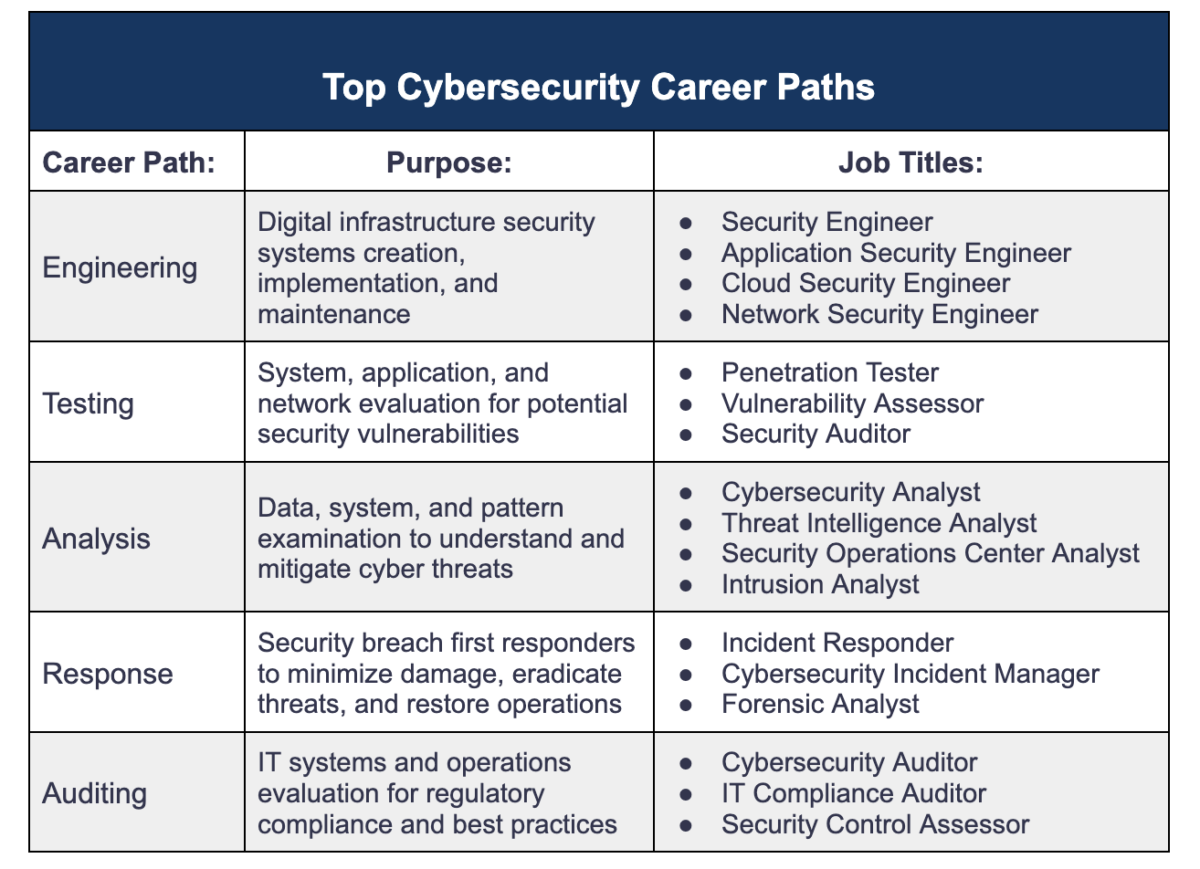Career in Cyber Security Compliance: Your Path to Success
Cyber security compliance is a growing field with increasing importance in the digital age. Professionals in this career ensure that companies adhere to legal and regulatory requirements to safeguard sensitive information. This role demands a solid grasp of both cybersecurity practices and the relevant laws.
Individuals must stay updated with evolving regulations and emerging threats. Many organizations seek experts to avoid penalties and maintain trust. A career in this field offers job security, competitive salaries, and the chance to make a significant impact on data protection. As cyber threats grow, so does the need for skilled compliance professionals.

Credit: medium.com
Introduction To Cyber Security Compliance
Cyber Security Compliance is crucial in today’s digital age. Organizations must protect sensitive data and ensure they follow legal standards. This is important for maintaining trust and avoiding penalties.
Importance Of Compliance
Compliance ensures organizations follow laws and regulations. This helps protect customer data and business information. A lack of compliance can lead to fines and data breaches.
Businesses gain customer trust by being compliant. This trust is essential for long-term success. It also helps in building a positive reputation.
- Protects sensitive data
- Prevents legal penalties
- Builds customer trust
Regulatory Landscape
The regulatory landscape in cyber security is complex. Various laws and regulations apply to different sectors. Understanding these rules is crucial for businesses.
| Regulation | Sector | Key Requirement |
|---|---|---|
| GDPR | European Union | Data Protection |
| HIPAA | Healthcare | Patient Data Privacy |
| PCI DSS | Finance | Credit Card Security |
Staying updated with these regulations is essential. It helps businesses avoid legal troubles. Regular audits and training can ensure compliance.
- Understand the specific regulations for your sector.
- Implement necessary security measures.
- Conduct regular compliance audits.

Credit: databrackets.com
Key Skills Required
Embarking on a career in cyber security compliance demands a unique skill set. Understanding these key skills will help you excel in this field. Let’s dive into the essential skills required for a successful career in cyber security compliance.
Technical Proficiency
Technical proficiency is crucial for cyber security compliance. You need a strong grasp of computer networks and systems. Knowledge of programming languages like Python and Java is beneficial. Understanding encryption techniques and firewalls is essential. Being comfortable with security tools and software will give you an edge.
Here are some key technical skills:
- Network Security
- Encryption Methods
- Firewall Configuration
- Programming Languages (Python, Java)
- Security Tools (Wireshark, Metasploit)
Analytical Skills
Analytical skills help you solve complex problems. They are vital in cyber security compliance. Critical thinking allows you to assess security risks. You must analyze data to identify potential threats. Strong analytical skills help in creating effective security policies.
Here are some key analytical skills:
- Risk Assessment
- Data Analysis
- Problem-Solving
- Critical Thinking
- Security Policy Development
Possessing these skills will ensure you stand out in the field. Focus on developing both technical and analytical skills to thrive in cyber security compliance.
Educational Pathways
Starting a career in cyber security compliance requires specific educational pathways. These pathways guide you towards acquiring the necessary knowledge and skills. Below are the main educational routes you can take.
Relevant Degrees
Pursuing a degree in a related field is crucial. Below are some degrees that can help:
- Bachelor’s in Cyber Security: This degree provides foundational knowledge in cyber security.
- Bachelor’s in Information Technology: This degree covers various aspects of IT, including security.
- Master’s in Cyber Security: Advanced studies for specialized knowledge in cyber security compliance.
- Master’s in Information Assurance: Focuses on protecting information systems from risks and threats.
| Degree | Focus Area | Duration |
|---|---|---|
| Bachelor’s in Cyber Security | Cyber Security Fundamentals | 4 years |
| Bachelor’s in Information Technology | IT and Security Principles | 4 years |
| Master’s in Cyber Security | Advanced Cyber Security | 2 years |
| Master’s in Information Assurance | Risk Management | 2 years |
Certification Programs
Certifications validate your skills and knowledge in cyber security compliance. Here are some important certifications:
- CISSP (Certified Information Systems Security Professional): Recognized globally, this certifies expertise in information security.
- CISM (Certified Information Security Manager): Focuses on managing and governing enterprise information security.
- CRISC (Certified in Risk and Information Systems Control): Specializes in identifying and managing IT risks.
- CEH (Certified Ethical Hacker): Provides skills to understand and counteract hacking techniques.
Certification programs are often shorter than degree programs. They provide specific skills needed for cyber security compliance roles.
Career Opportunities
Cyber Security Compliance is a booming field with a wealth of career opportunities. From entry-level roles to advanced positions, this sector offers a variety of paths for aspiring professionals. Below, we explore the potential career opportunities in Cyber Security Compliance.
Entry-level Roles
Starting a career in Cyber Security Compliance often begins with entry-level roles. These positions usually require foundational knowledge and skills. Here are some common entry-level roles:
- Compliance Analyst: Monitors and ensures that an organization follows legal standards and internal policies.
- Security Administrator: Manages and maintains security systems to protect data and networks.
- IT Auditor: Reviews and assesses the effectiveness of an organization’s IT systems and controls.
| Role | Key Responsibilities | Average Salary |
|---|---|---|
| Compliance Analyst | Monitor compliance, prepare reports | $60,000 |
| Security Administrator | Manage security systems, update protocols | $65,000 |
| IT Auditor | Review IT systems, assess risks | $70,000 |
Advanced Positions
For those with experience, advanced positions in Cyber Security Compliance offer greater responsibilities and rewards. These roles often require specialized skills and extensive experience. Here are some advanced positions:
- Compliance Manager: Oversees compliance programs and manages a team of analysts.
- Chief Information Security Officer (CISO): Develops and implements security strategies at the highest level.
- Risk Management Director: Identifies and mitigates risks across the organization.
| Role | Key Responsibilities | Average Salary |
|---|---|---|
| Compliance Manager | Oversee programs, manage team | $100,000 |
| Chief Information Security Officer (CISO) | Develop security strategies | $150,000 |
| Risk Management Director | Identify and mitigate risks | $130,000 |
Challenges In The Field
Pursuing a career in cyber security compliance is rewarding but challenging. Professionals face many hurdles, from evolving regulations to increasing cyber threats. Understanding these challenges is crucial for success.
Keeping Up With Regulations
Cyber security compliance involves adhering to various laws and standards. These regulations change frequently. Staying updated requires continuous learning.
Professionals must track updates from multiple sources. This includes government agencies and industry bodies. A single missed update can lead to non-compliance. This can result in hefty fines.
| Regulation | Governing Body |
|---|---|
| GDPR | European Union |
| HIPAA | U.S. Department of Health and Human Services |
| PCI DSS | Payment Card Industry Security Standards Council |
Dealing With Cyber Threats
Cyber threats are always evolving. Hackers use new techniques every day. Staying ahead of these threats is a constant battle.
Professionals must use various tools and strategies. This includes firewalls, encryption, and intrusion detection systems. Regular risk assessments are also essential.
- Identify vulnerabilities
- Implement security measures
- Monitor systems continuously
Training employees on security best practices is also vital. This ensures everyone knows how to handle threats. A single mistake can compromise the entire system.
Building A Strong Resume
Creating a strong resume is crucial for a career in cyber security compliance. Your resume should highlight your skills and experience clearly. It must stand out to potential employers.
Highlighting Skills
Focus on the most important skills for cyber security compliance. These include:
- Risk Management
- Data Protection
- Regulatory Knowledge
- Incident Response
Use bullet points to list your skills. This makes it easy for recruiters to read. Ensure to include keywords from the job posting. This will help your resume pass through Applicant Tracking Systems (ATS).
Showcasing Experience
Your experience section should be clear and concise. Use action verbs and quantify your achievements. For example:
| Job Title | Company | Duration | Achievements |
|---|---|---|---|
| Cyber Security Analyst | TechCorp | 2018-2021 |
|
| Compliance Officer | DataSafe Inc. | 2015-2018 |
|
Make sure to include job titles, companies, and dates. Highlight your achievements using bullet points. This makes your resume easy to scan and read.
Networking And Professional Development
Building a career in cyber security compliance requires more than technical skills. Networking and professional development play a crucial role. They help you stay current with industry trends and expand your opportunities. This section will explore the importance of joining professional organizations and attending industry events.
Joining Professional Organizations
Professional organizations can be a valuable resource. They offer access to exclusive content, training, and certifications. Here are some key benefits:
- Access to Industry Experts: Connect with leading professionals.
- Exclusive Resources: Gain access to specialized training and tools.
- Career Opportunities: Find job postings and career advice.
Some notable organizations to consider:
| Organization | Benefits |
|---|---|
| ISACA | Certifications, training, networking events |
| ISC2 | Certifications, professional development, industry news |
| InfraGard | Information sharing, training, collaboration |
Attending Industry Events
Industry events provide unique networking opportunities. They are also a great way to learn about the latest trends. Here’s why attending these events is beneficial:
- Networking: Meet peers and potential employers.
- Learning: Attend workshops and seminars.
- Exposure: Discover new technologies and methodologies.
Some top events to consider:
- Black Hat USA
- DEF CON
- RSA Conference
Both joining professional organizations and attending industry events are essential. They help you build a strong network and stay updated. These activities can significantly boost your career in cyber security compliance.
Future Trends
The field of cyber security compliance is ever-evolving. New technologies and regulations shape its future. Understanding these trends helps professionals stay ahead.
Impact Of Ai
Artificial Intelligence (AI) is transforming cyber security compliance. AI tools can detect threats faster than humans. They analyze vast amounts of data efficiently. This speeds up the compliance process.
AI can also predict potential security breaches. This allows for proactive measures. It reduces the risk of data breaches. AI is a game-changer for compliance teams.
| AI Feature | Benefit |
|---|---|
| Threat Detection | Identifies risks quickly |
| Data Analysis | Processes large data sets |
| Predictive Analysis | Anticipates security breaches |
Emerging Regulations
New cyber security regulations emerge regularly. These regulations aim to protect data privacy. Companies must stay updated with these changes. Compliance ensures they avoid hefty fines.
Governments worldwide are enforcing stricter laws. For instance, the General Data Protection Regulation (GDPR) in Europe. The California Consumer Privacy Act (CCPA) in the USA. These regulations demand robust security measures.
Here is a list of some important regulations:
- GDPR – Europe
- CCPA – USA
- HIPAA – USA (Healthcare)
- PCI DSS – Global (Payment Cards)
Meeting these standards is crucial. It builds trust with customers. It also protects the company’s reputation.

Credit: www.springboard.com
Frequently Asked Questions
What Is Cyber Security Compliance?
Cyber Security Compliance ensures organizations meet security standards and regulations. It protects data and reduces risks. Compliance involves adhering to laws, policies, and standards. This helps in avoiding penalties and breaches.
Why Is Cyber Security Compliance Important?
Cyber Security Compliance is crucial for data protection. It minimizes risks and legal issues. Compliance ensures organizations follow industry standards. This builds trust with clients and stakeholders.
How To Start A Career In Cyber Security Compliance?
Start by gaining relevant education and certifications. Learn about regulations and frameworks. Gain practical experience through internships or entry-level jobs. Networking can also help.
What Skills Are Needed For Cyber Security Compliance?
Key skills include knowledge of regulations, risk management, and security frameworks. Analytical thinking and attention to detail are essential. Communication skills are also important for reporting and collaboration.
Conclusion
A career in cyber security compliance offers significant growth and stability. It is essential for protecting organizational data. Professionals in this field are in high demand. They help businesses adhere to regulations and avoid penalties. Pursuing this path ensures a rewarding and impactful career.
Start your journey in cyber security compliance today.
